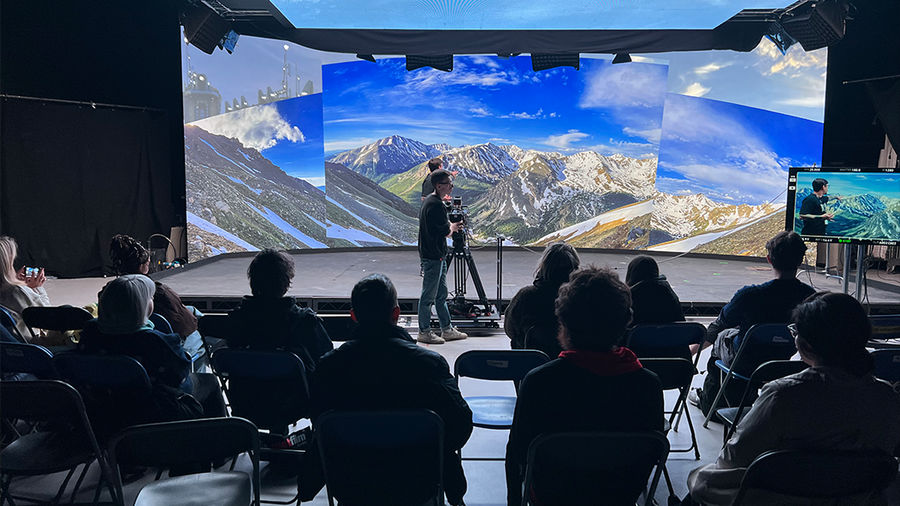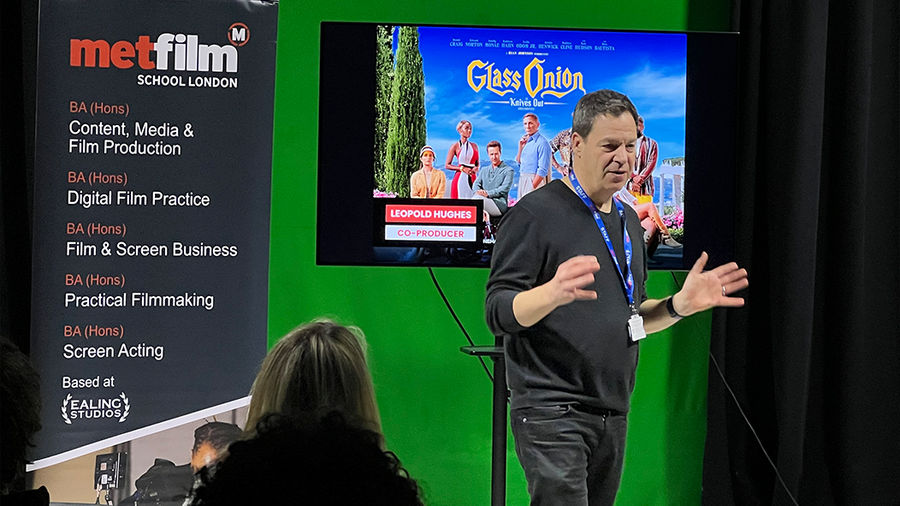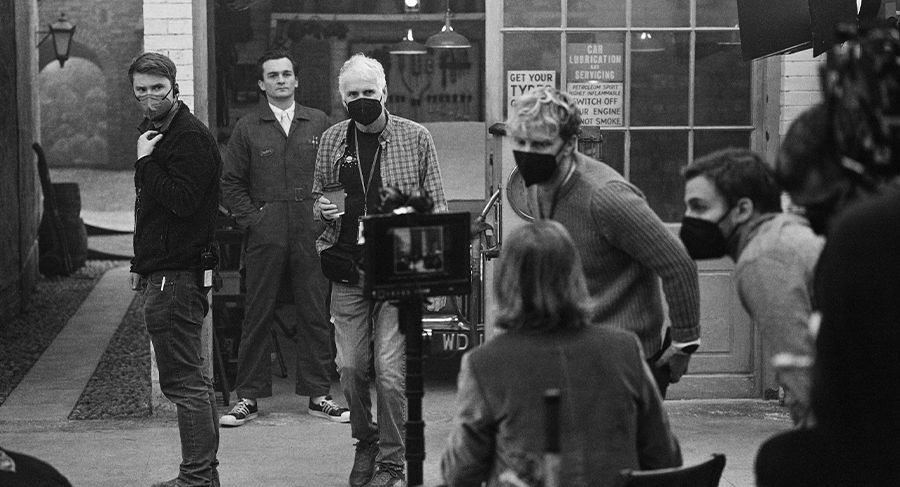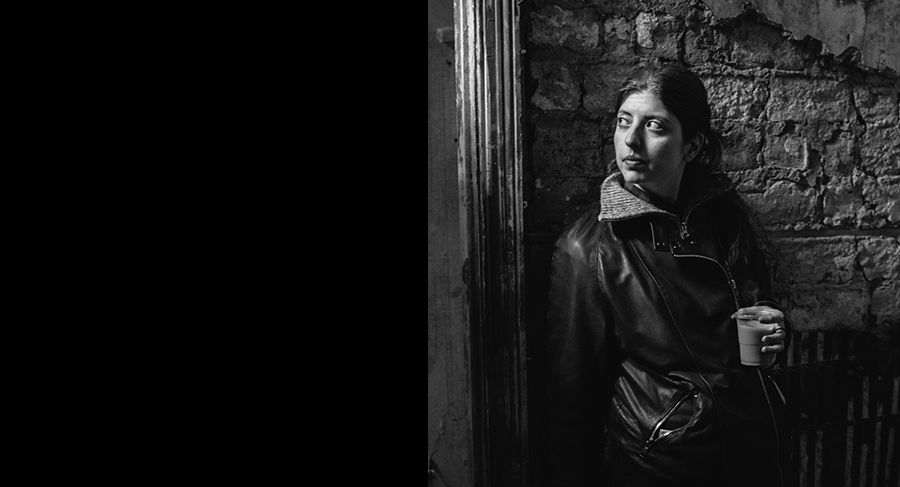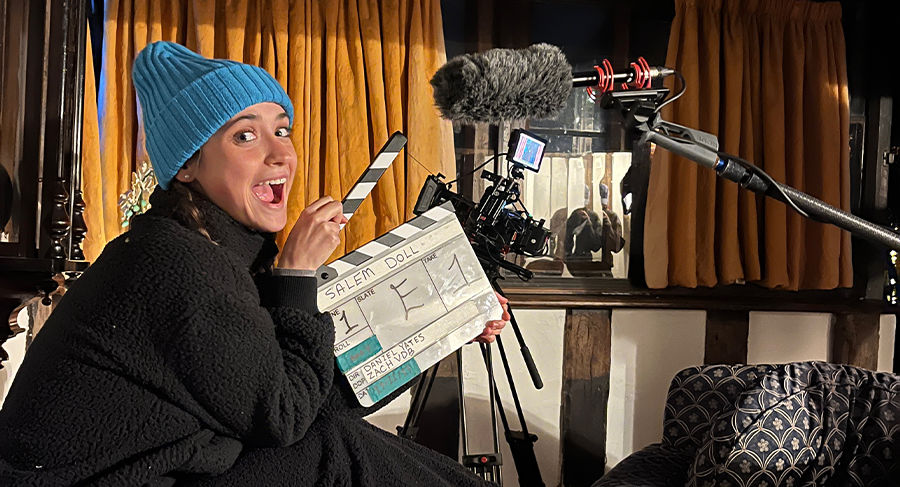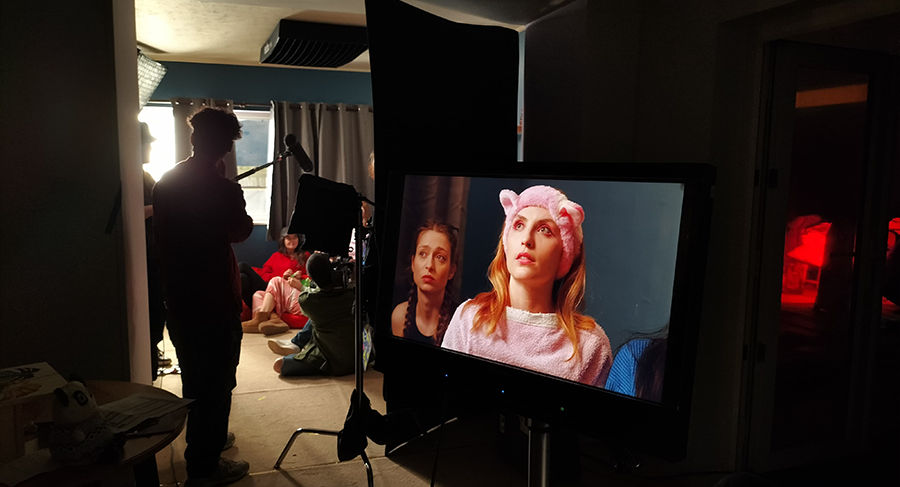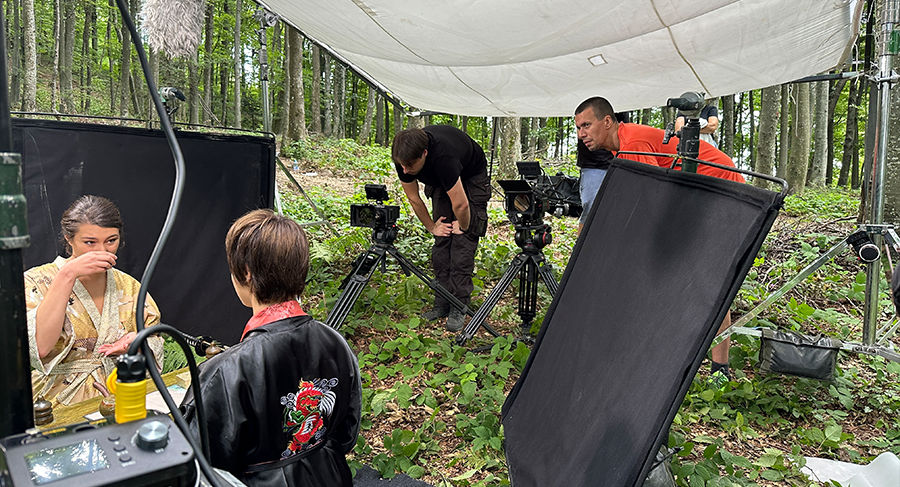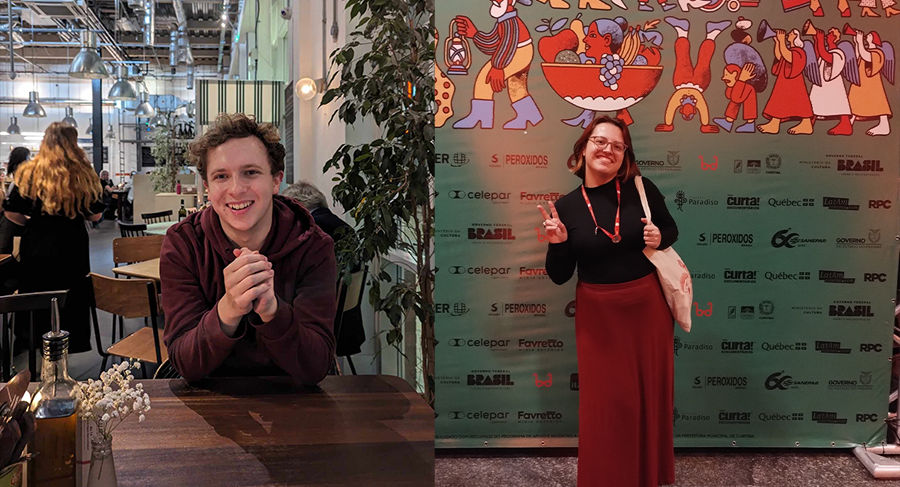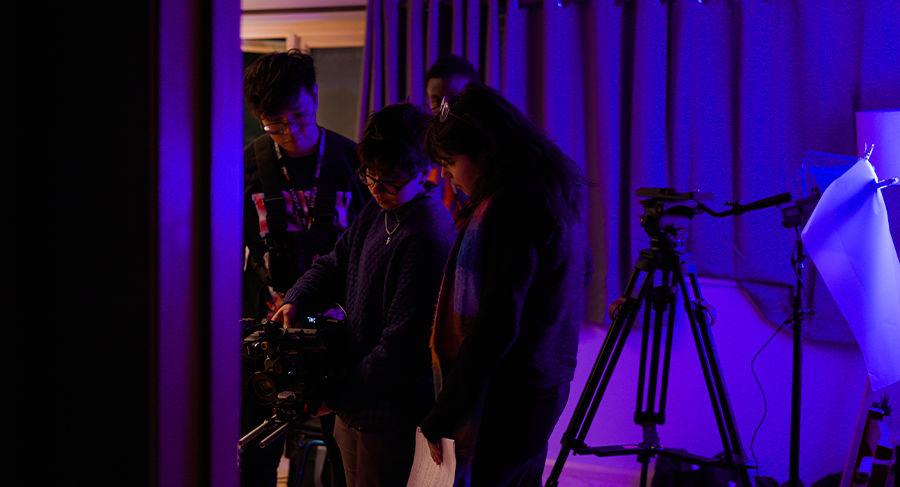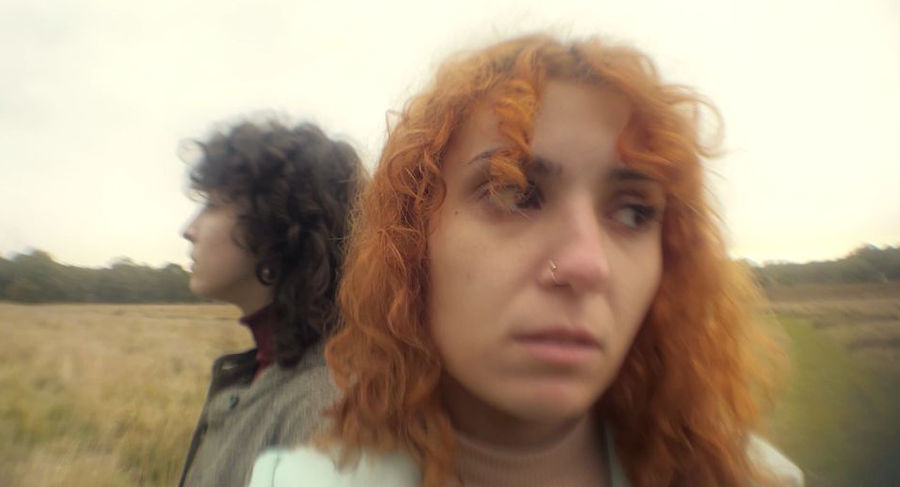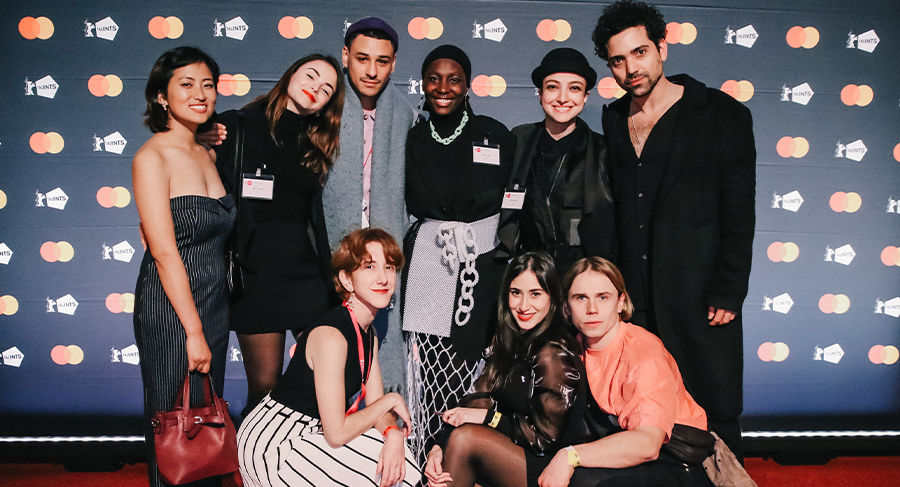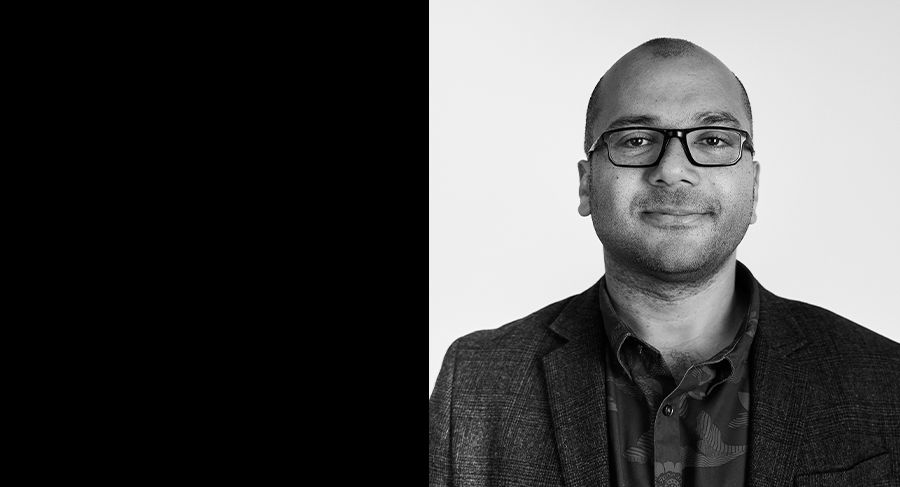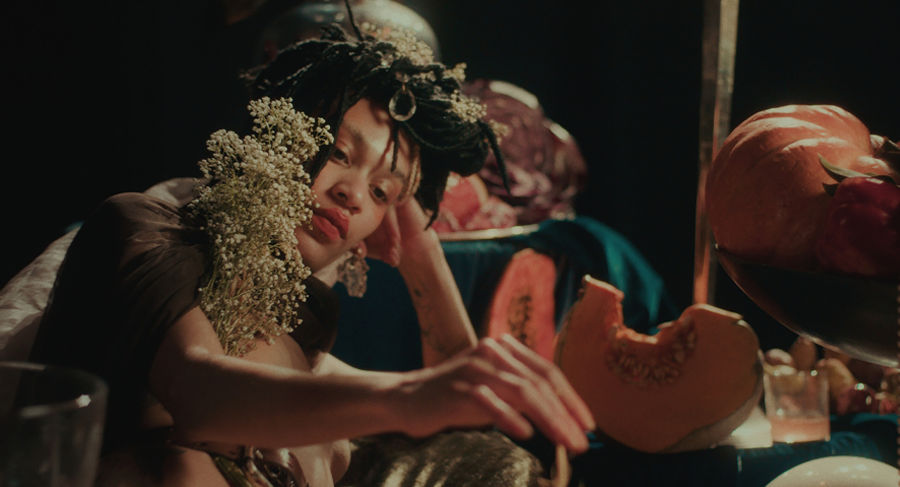3 Myths Debunked: Discover Digital Film Practice
By Elise Czyzowska
23 January 2024
Last Thursday, we hosted our first Digital Film Practice Discovery Session. Held at Garden Studios, we invited YOU to explore our new degree, BA Digital Film Practice*, through a tour of our facilities, a 90-minute Virtual Production Workshop, and insight into the four available pathways: Post Production, Sound, Virtual Production, and Visual Effects.
A relatively ‘new’ area of the screen industries, digital media – and especially the worlds of Virtual Production and Visual Effects – are often surrounded by myths and misconceptions. In today’s blog, we’re helping to demystify these crafts, sharing the top takeaways from our Discovery Session…
It’s an ‘exclusive’ craft
Digital Media has a reputation for being inaccessible or ‘exclusive’, largely due to the equipment required. High-tech Virtual Production stages, editing software or sound equipment… it can seem daunting to start building a career in these fields.
But really, once you have the training and the knowledge to understand these disciplines, there’s nothing you can’t do – and the talented team at Garden Studios helped prove this during our Discovery Session, running a Virtual Production Workshop where guests could get stuck in and try things out for themselves.
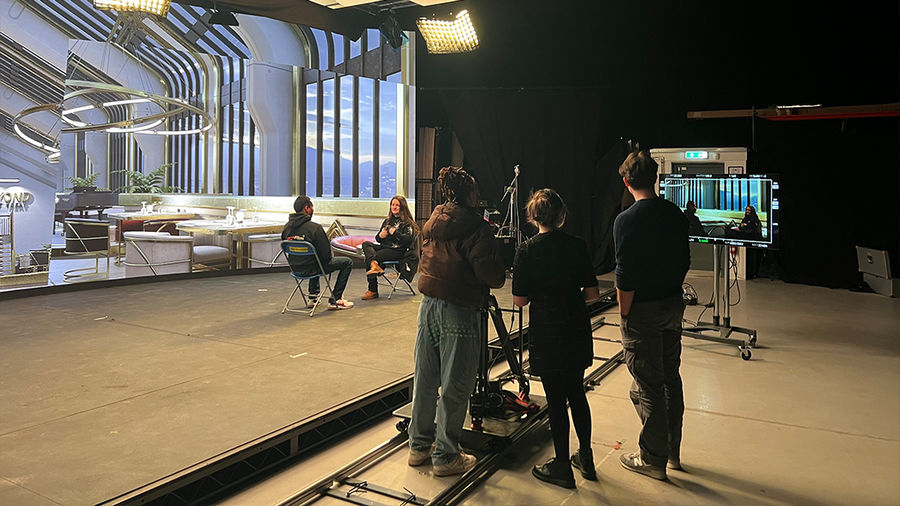
And outside of this session, industry data also highlights the continued demand for skilled employees in these fields. According to a 2023 BFI Report, this extends especially to recent graduates in the UK’s Post Production and Digital Content fields.
MetFilm School launched BA Digital Media Practice* with data like this in mind. Through technical training in these cutting-edge disciplines, our students emerge as highly-skilled creatives, ready to take advantage of this increasing demand.
In fact, MetFilm School graduates have already seen huge success in these fields, working on some of the most popular films of the last few years:
- Marta Baidek (BA Practical Filmmaking) – Visual Effects Production Manager, Black Widow, Ant-Man and the Wasp: Quantumania, Batgirl
- Ana Gabriela Fernández Walean (MA Post Production) – 2nd Assistant Editor, Asteroid City, The Wonderful Story of Henry Sugar
- Menelaos Pampoukidis (MA Directing) – Visual Effects Supervisor, One Life, Love at First Sight
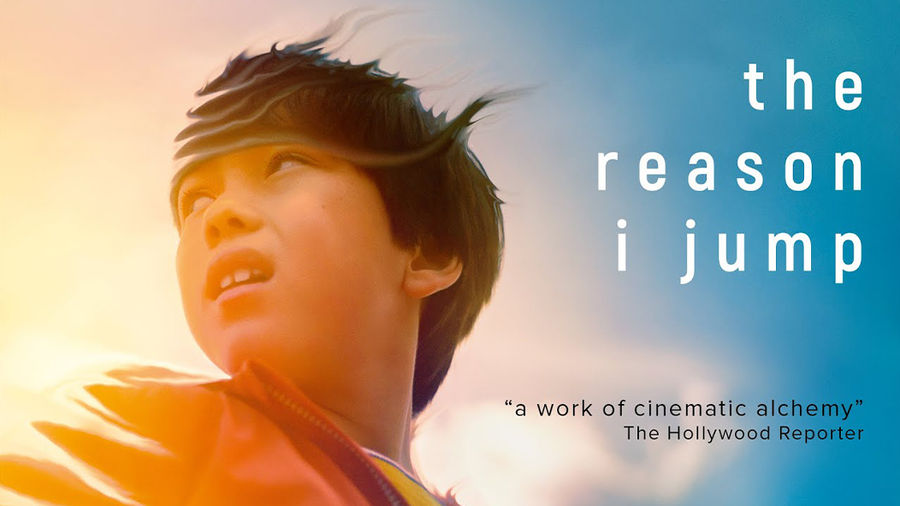
It’s not ‘real filmmaking’
Unfortunately, one of the most prevalent misconceptions surrounding digital media crafts is that they ‘don’t count as real filmmaking’. This is less so for more established crafts, such as Sound or Post Production, where it is easier to imagine a potential career path, but still lingers around ‘newer’ areas of Virtual Production and Visual Effects.
Not only does this myth undervalue the hard work and skill that goes into these disciplines, but it also discredits the opportunity that they provide for filmmakers. Through advancements in technology, Virtual Production and VFX work gives creatives options that they could never have dreamed of just a decade ago – new locations, new effects, and most importantly: new, future-focused methods of telling their stories.
On top of this, these pathways provide emerging creatives alternative routes into the industry. For low budget productions, travel costs can be a large portion of the project’s budget – but by filming in one studio, against a green screen, this is minimised. Not to mention the sustainability benefits of this form of filmmaking, which were highlighted by Studio Ulster at last year’s COP28:
Researchers highlighted the significant environmental benefits of virtual production, and outlined how it can reduce carbon emissions by between 20-50%, or higher, depending on deployment, compared to traditional film methods.
Our partners, Garden Studios, who hosted this Discovery Session, are at the forefront of these sustainability benefits. In 2021, the team made history with the UK’s first ever carbon-neutral film, in partnership with Quite Brilliant and MadeBrave.
Digital pathways into film may not be ‘traditional’ filmmaking, but they can compliment and enhance these approaches, offering a future-focused approach to the industry.
Go behind-the-scenes of the UK’s first carbon-neutral film, made by Garden Studios
It’s not an option for me
When we think of the screen industries, it’s hard not to tie it into the glamour of red carpets and awards shows, or the extroverted world of networking events and so on. But for many people, this is not what they want from a career path. The beauty of digital media – and in particular, the four pathways offered on our new BA degree, is that they truly make space for every type of creative.
Collaborating on a production in the ‘post’ arena – through editing or sound design, for example, offers a creative space on a smaller scale. And even in this smaller space – the career options are vast. Take a look at the ScreenSkills Job Profiles in your chosen craft to see just how many options you have.
At our recent Discovery Session, we were happy to see this thought echoed by our guests. Taking part in our practical demonstration, students with a passion for this industry, but who did not want to be thrown head-first into the extroverted world of ‘traditional filmmaking’, found their chosen roles much more secure and enjoyable.
This is why the four pathways offered in our BA Digital Film Practice* degree focus on building confidence through smaller cohorts, and maximising collaboration across the disciplines. In all, Post Production, Sound, Virtual Production, and Visual Effects offer ‘behind-the-scenes’ roles for creatives, while still allowing for a highly creative and fulfilling career path.
- Explore BA Digital Film Practice* through its four pathways: Post Production, Sound, Virtual Production, Visual Effects.
- Visit us in-person at one of our upcoming Open Events – Book Today!
- Speak to our Admissions Team ahead of the UCAS Deadline on Wednesday 31 January, 6pm GMT.
*Subject to Validation

